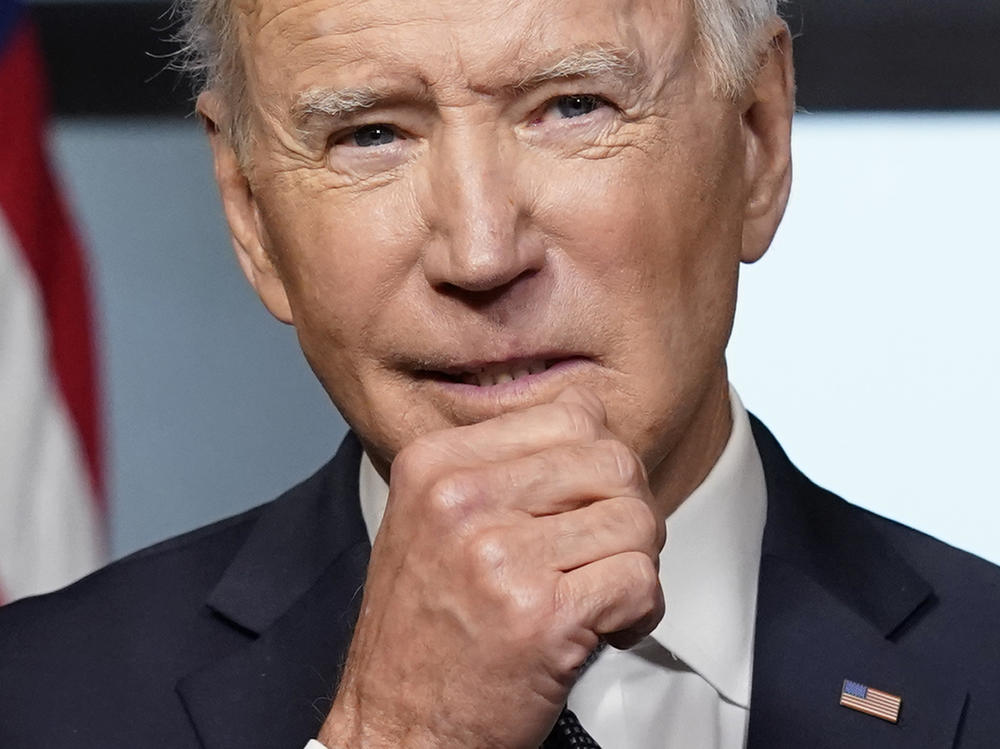Section Branding
Header Content
In Talks With Japanese Prime Minister, Biden To Focus On Countering China
Primary Content
When President Biden welcomes Japanese Prime Minister Yoshihide Suga to the White House on Friday, concerns about the competition posed by China will be front and center in the talks.
It is Biden's first in-person visit with a foreign leader at the White House since he took office, and it sends a signal about how Biden plans to work through alliances to counter China.
"We have to shore up American competitiveness to meet the stiff competition we're facing from an increasingly assertive China," Biden said earlier this week, explaining his rationale for pulling American troops out of Afghanistan, which he said had diverted too much attention away from more critical issues.
"We have to strengthen our alliances and work with likeminded partners to ensure that the rules of international norms that govern cyber threats and emerging technologies that will shape our future are grounded in our democratic values, not those of the autocrats," Biden said.
To that end, he and Suga are set to announce a $2 billion commitment to support alternative 5G networks that are beyond or outside of the network of China telecommunications giant Huawei, a senior Biden administration official told reporters ahead of the meeting.
Biden's predecessor, former President Donald Trump, had banned Huawei from buying U.S. technology and blocked U.S. firms from buying Huawei components, citing national security concerns. The Biden administration is still reviewing that policy and has not yet made clear whether it will keep the bans in place.
The two leaders will discuss concerns about recent Chinese military flights in Taiwan's airspace, a situation the U.S. official described as "China and cross-strait circumstances." Both leaders want to play a "steady, careful role to underscore our mutual commitment in the maintenance of peace and stability, and to take steps to calm tensions and to discourage provocation," the official said.
"Neither country is seeking to raise tensions or to provoke China," the official said. The discussions on Taiwan, as well as concerns about China's treatment of Hong Kong and human rights abuses in the Xinjiang region, are expected to be "in line with the kinds of dialogue and discussion seen between the U.S. and Japan in recent times," the official said. "Prime Minister Suga wants to walk a careful course and we respect that."
Biden is also close to finishing a review of his administration's policy on North Korea, and is expected to discuss that review with Suga, the official said.
The North Korea review likely will also be in focus for Biden's next summit with a foreign leader. The White House announced on Thursday that Biden plans to meet with South Korea President Moon Jae-in in Washington, D.C., in the second half of May.
The U.S. is concerned about longstanding tensions between Japan and South Korea, aggravated by a recent trade dispute. "The political tensions are such that we believe it actually impedes all of our abilities to be effective in Northeast Asia, and I think the president will want to discuss this in some detail" with Suga, the official said.
Copyright 2021 NPR. To see more, visit https://www.npr.org.

